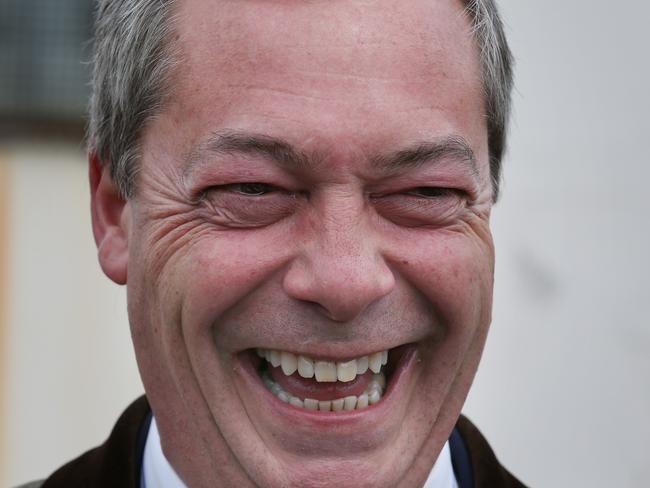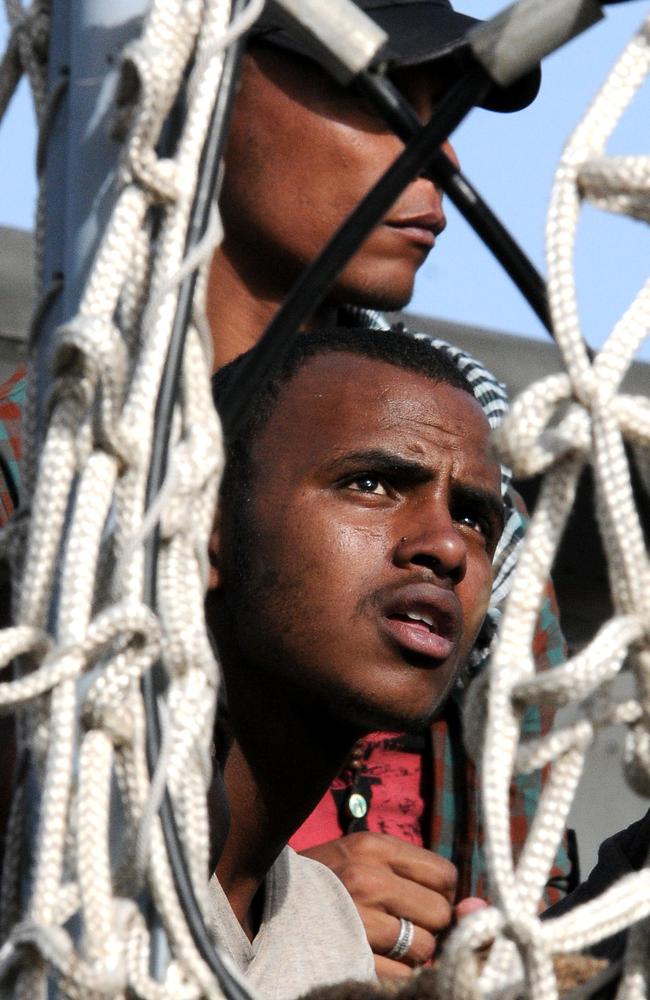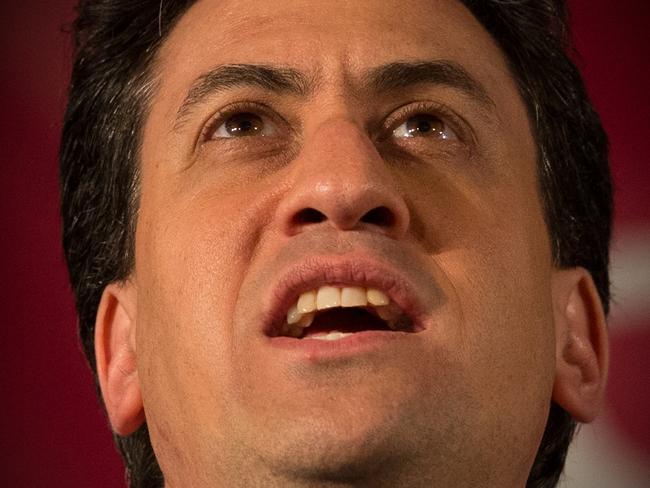Immigration, European Union membership key issues in tight UK election
WITH the UK on the brink of its most unpredictable election in decades, debate is raging over an issue that Australia knows very well.
THE FUTURE of the European Union and whether or not the UK should adopt an Australian-style immigration system are two of the major issues dividing voters in a tight UK election that could change the face of Europe.
But for the extreme-right winged UK Independence Party (UKIP), our asylum seeker policy is a leap too far.
Voters are about to head to the polls in what is billed as one of the most unpredictable elections in decades. With hours to go, polls show a knife-edge vote with putting David Cameron’s Conservative Party and Ed Milliband’s Labour at 34 and 33 per cent respectively.
With neither of the parties are expected to win a clear majority, setting the stage for weeks of negotiations to come in a vote that could get seriously messy. Experts think smaller powers like the Liberal Democrats, UKIP or the Scottish National Party could hold the balance of power meaning it could be weeks before a government is formed.

At the centre of speculation surrounding the result is UKIP’s leader Nigel Farage. The accident-prone 51-year-old, who has survived cancer, a car accident and plane crash, has seen his popularity soar on a platform of quitting the EU and tightening immigration to the UK, mobilising a base of older, blue-collar voters who want a return to the good old days when Britain was a manufacturing powerhouse.
The former commodities trader, who is often pictured at pubs around the country, has also called for the UK to adopt an Australian-style points based immigration system where immigrants are granted entry based on points for language ability, education and employment skills.
“The fact is we cannot have a managed immigration policy and continue to be a member of the European Union where we have an open door to half a billion people,” he said earlier this year. “We want an Australian-style points system to decide who comes to live work and settle in this country.”

The UK is home to 64 million people with nearly 300,000 immigrants annually — many of whom come from eastern European countries under the EU’s free movement rules. However lack of sovereignty over borders has seen immigration become a serious issue in the UK with both the Conservatives and Labour pledging to reduce migration and tighten the rules on benefits in the recent campaign.
Monash University’s Dr Ben Wellings said the UKIP leader is keen on the “fantasy image of Australia” that fits with the party’s pro-Commonwealth and anti-Europe rhetoric.
“He’s keen on it because he sees it’s a tougher regime than currently exists in UK. Also, it resonates because it’s saying ‘lets borrow from Australia’ rather than ‘let’s borrow from Germany.’”
But Farage has been quick to distance himself from Australia’s policy on asylum seekers, telling The Guardian “Some of the ways that Australia acts on these things ... are tougher than we in Britain can perhaps stomach.”
“I think that’s just an indictment of the mess that the refugee policy has become in the last 15 years in Australia …. Even UKIP baulks at the Cambodian solution that we’ve got,” Dr Wellings said.
‘BREXIT’ AND THE BIG ISSUES
Immigration is just one of the key issues that will decide the election outcome, including the future British membership of the European Union, dubbed the ‘Brexit’ and austerity measures.
Prime Minister David Cameron has promised to hold a referendum on EU membership in 2017. While many are sceptical the British public would actually vote to leave, the prospect has caused nervousness in Brussels as other leaders realise losing Britain — a major NATO power, member of the UN Security Council and economic powerhouse — could damage the 28-member bloc.
How to reduce the $A173.59 billion budget deficit and the timing of getting back into surplus is also a major issue, along with the state of the National Health Service which Labour says the Conservatives are privatising by stealth.

Heading into the election, Dr Wellings said it’s clear minor parties could hold the balance of power in a result that could take weeks to form a government or lead to an unstable “rainbow coalition” of parties.
Prime Minister David Cameron has been accused of running a lacklustre campaign and being an “essay crisis” leader — who leaves things to the last minute like a procrastinating student.
In the final days of campaigning. the Eton and Oxford educated Tory — who took the lead in 2010 and led the UK out of a double-dip recession — has vowed to “work the hardest I’ve ever worked” to retain the leadership.
While neither major party has raised the prospect, it’s thought secret preparations have been made for a second election. Liberal Democrat leader Nick Clegg, who is currently Cameron’s deputy, said: “Everybody knows that no one will win this election, even if David Cameron and Ed Miliband won’t admit it publicly.”
“The last thing Britain needs is a second election before Christmas. But that is exactly what will happen if Ed Miliband and David Cameron put their own political interest ahead of the national interest.”

Dr Wellings said one of the most interesting stories to come out of the campaign so far is the Scottish National Party who have soared in popularity and could end up holding the balance of power in a union they don’t even want to be part of.
“The consequences are really interesting and possibly far reaching. Some polls are saying they will win all 59 seats in Scotland. That is astonishing considering they had just six at the beginning. That has just smashed Labour in Scotland,” Dr Wellings said.
However he also said while polling shows UKIP with around 15 per cent of the vote, smaller parties can face challenges when they enter parliament as “the wheels can start to come off” much like the Palmer United Party’s meltdown in Australia.
“It’s not clear that getting into Westminster will do UKIP any favours but of course they’ve got to try,” he said.
— Victoria.Craw@news.com.au



